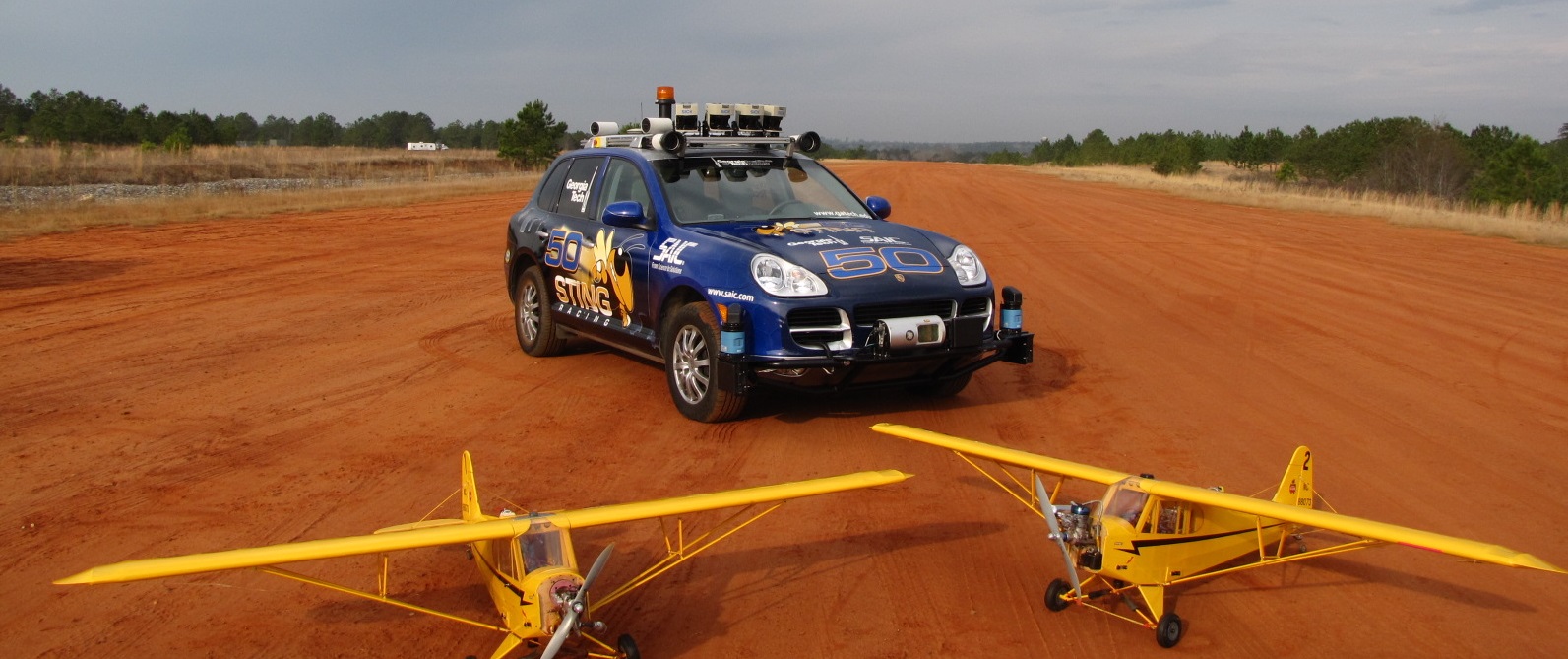
Beginning this summer, the Georgia Institute of Technology and CNN will embark on a joint research initiative to better understand the opportunities unmanned aerial vehicles (UAVs) present for media organizations, and to explore the access and safety issues that need to be addressed as part of any new regulatory framework. The project team will be staffed by researchers at the Georgia Tech Research Institute (GTRI) and senior members of CNN’s newsgathering team.
The effort will evaluate the technology, personnel and safety needs to operate effectively in the national air space. GTRI and CNN plan to share their research data with the Federal Aviation Authority (FAA) as it considers regulations that will allow for the safe and effective operation of UAVs by media outlets.
“UAVs have a number of applications that benefit society, such as search and rescue, disaster response and agricultural mapping and crop assessment,” said Mike Heiges, GTRI Principal Research Engineer. “We’re excited to be engaging with CNN to study the newsgathering applications for UAVs and look forward to working with one of the most respected news operations in the world.”
GTRI is a world leader in UAV research, both in support of the Department of Defense (DoD) and also for private industry. Uniquely positioned to conduct this research, GTRI works closely with the FAA and has received more than 24 certificates of authorization (COA) from the FAA.
“Our hope is that by working cooperatively to share knowledge, we can accelerate the process for CNN and other media organizations to safely integrate this new technology into their coverage plans,” said David Vigilante, CNN’s Senior Vice President, Legal. “It’s a natural opportunity to work with our neighbors at Georgia Tech, who have experience, expertise and insights into this area.”
For almost 80 years, GTRI has been building a reputation as one of the world's premier applied research and development organizations. Each day, GTRI's science and engineering expertise is used to solve some of the toughest problems facing government and industry across the nation and around the globe. A non-profit research institute, GTRI teams with its customers to attack their problems with passion and objectivity. In FY 2013, GTRI conducted more than $305 million in sponsored research for government and industry. Our nearly 1,800 expert scientists, engineers, and support staff turn ideas into workable solutions and then put those solutions into action.
CNN Worldwide is a portfolio of two dozen news and information services across cable, satellite, radio, wireless devices and the Internet in more than 200 countries and territories worldwide. Domestically, CNN reaches more individuals on television, the web and mobile devices than any other cable TV news organization in the United States; internationally, CNN is the most widely distributed news channel reaching more than 271 million households abroad; and CNN Digital is a top network for online news, mobile news and social media. Additionally, CNN Newsource is the world’s most extensively utilized news service partnering with hundreds of local and international news organizations around the world. CNN is a division of Turner Broadcasting System Inc., a Time Warner Company.




